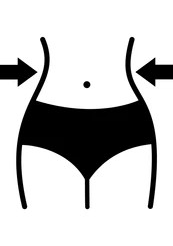Journaling isn’t just something you did in middle school. It turns out, assigning words to what’s going on in your head and heart can actually help you shed those pesky pounds. This practice goes beyond jotting down what you had for lunch on a random Tuesday, it’s about tapping into the ‘why’ behind your choices.
Reflecting on your eating habits can uncover patterns you might not even notice otherwise. It’s like having a little detective in your pocket, ready to investigate why you reach for the cookies when things get a bit too real. Once you recognize these habits, you’re in a much better position to make changes.
Writing stuff down lets you see your triggers right there in black and white. Many of us eat when we’re stressed, bored, or out of habit. Keeping a journal can help pinpoint those moments and find better ways to cope, like going for a walk or calling a friend.
Check out stories from folks who’ve turned their lives around by journaling. They used it to face their fears, uncover hidden emotions, and embrace healthier lifestyles. Their journeys aren’t just inspiring, they’re blueprints on showing you how journaling could be your secret weapon in the fight against unwanted weight.
The Science Behind Journaling and Weight Loss
So, how does scribbling in a notebook help with shedding weight? Turns out, there’s some serious brain stuff happening here. Journaling can actually get your noggin’ to work smarter, not harder, when it comes to food cravings and eating habits.
When you’re jotting down your thoughts and feelings, it’s kind of like pressing the pause button on your brain. This little act of mindfulness can throw a wrench in emotional eating patterns. It’s like developing a superpower to pause and think before diving headfirst into a bag of chips.
There’s cool research backing this up. Studies have shown that good ol’ pen and paper (or typing, if that’s your jam) can help in managing weight. People who write about their daily eats often find themselves making healthier food choices almost by default.
Gratitude journaling plays a role too. It’s like giving your brain an attitude adjustment. By focusing on things you’re thankful for, your body image might just get that positive boost you didn’t know it needed. Feeling good about yourself can be a powerful motivator in sticking to your health goals.
Cognitive behavior techniques, when woven into journaling, can also help. You’re essentially becoming your own therapist in a way, digging into why you make certain choices and finding ways to flip the script on negative patterns.
Creating an Effective Journaling Routine for Weight Loss
Getting started with a journaling routine might feel a bit overwhelming but think of it as setting up a date with yourself. No need to get all fancy; just grab a notebook and pen, or your favorite notes app. Consistency, not perfection, is the name of the game.
It’s helpful to pick a set time each day or week to jot down your thoughts. Maybe it’s right after breakfast or when you tuck into bed. The idea is to make it a regular part of your day, like brushing your teeth but for your mind.
Prompts can kickstart your journaling, especially if staring at a blank page makes your brain freeze. Consider questions like, ‘What made me feel stressed today?’ or ‘Did I eat today because I was hungry or something else?’ These kinds of prompts can shine a light on your emotional landscape.
Tracking what you eat—including the not-so-great stuff—along with how you were feeling at the time, can highlight patterns. You might start noticing that you snack more when you’re tired, or treat yourself after a tough day at work.
While it’s good to have a routine, make sure you’re flexible too. Life happens and some days might be busy or stressful. That’s okay. The beauty of journaling is that it can adapt to your needs, helping you steer your weight loss journey without burning out.
Overcoming Challenges and Staying Motivated Through Journaling
Bumps in the road are all part of the journey. You might get stuck or feel like dropping the pen altogether. That’s normal change is always a bit of a wild ride. Just because you didn’t journal about every single meal doesn’t mean you’ve failed. It’s about being honest with yourself and finding what sticks.
You might get bored or feel like it’s not worth it. Keep it fresh by trying different prompts or even doodling if words aren’t flowing. It’s your space to explore, so make it as creative or straightforward as you like.
Goals are your friend. Writing them down can make them feel real, and crossing them off? Oh, that’s the sweet spot. Make sure they’re realistic, though. If you aim too high right off the bat, things might turn sour quick.
Celebrate the wins, no matter how small they seem. Did you skip that third scoop of ice cream or get an extra walk in? That’s success right there. Jot it down and give yourself a mental high five. Every little victory counts and fuels the next step forward.
Remember, journaling isn’t one-size-fits-all. As your goals shift, so should your strategies. Maybe what worked six months ago doesn’t feel right now, and that’s fine. Tailor your journaling to meet your current mindset and goals, keeping your path to weight loss as adaptable as life itself.
